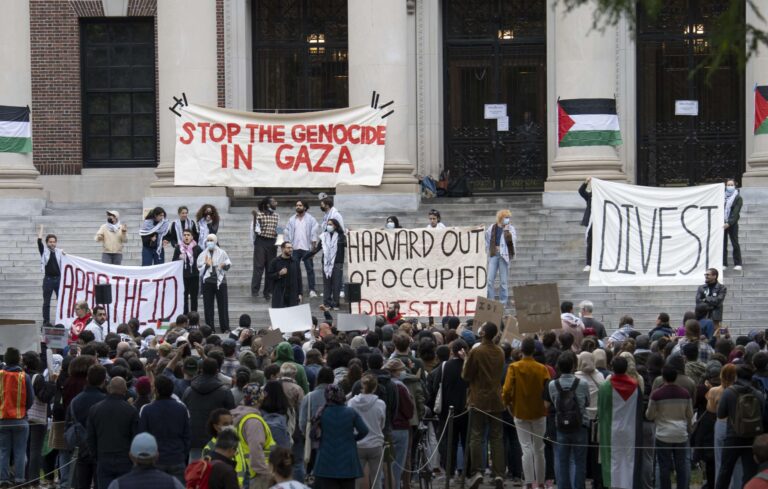Final Friday a gaggle of scholars wrote one visitor essay in The New York Occasions arguing that the wave of anti-Israel, pro-Palestinian exercise on many school campuses shouldn’t be new, reliable free speech — and that universities have a “ethical accountability” to fight it.
“Freedom of speech, open debate, and heterodox views are on the core of educational life,” wrote Gabriel Diamond, Talia Dror, and Jillian Lederman, college students at Yale, Cornell, and Brown, respectively. “They’re elementary to coaching future leaders to suppose and act morally. The fact on some school campuses in the present day is the alternative: open harassment of Jewish college students. Mob harassment shouldn’t be confused with freedom of speech.”
The authors level to a number of examples of clearly unprotected expressions which have occurred in latest weeks, for instance on-line to tell made by a Cornell pupil who threatened to ‘shoot up’ a kosher eating corridor, and a number of other copies of bodily violence in opposition to Jewish college students.
Nevertheless, lots of the different examples the authors cite are blatantly First Modification protected expressions.
“Masked college students have chanted slogans comparable to ‘From the river to the ocean, Palestine shall be free,’ which many see as a name for Israel’s destruction. Others have shouted: ‘There is just one answer, the intifada revolution’.” they write. Moreover, Diamond, Dror, and Lederman cited a number of examples of professors making offensive statements concerning the terrorist assault, lamenting that “so far as we all know, none of those professors have obtained significant self-discipline, not to mention dismissal.”
Regardless of their professed commitments, the authors make a transparent name for censorship by invoking college speech codes.
“The codes of ethics at universities throughout the nation condemn harassment and maintain college students and school to requirements of dignity and respect for others. Campuses are at a crossroads: management can implement these ethics, or these locations of studying will succumb to mob rule. their most radical voices,” they write. “Merely affirming that taunts and harassment haven’t any place on campus shouldn’t be sufficient. Professors who violate these guidelines needs to be punished or fired. Scholar teams that incite or justify violence mustn’t obtain college funds to conduct actions on campus.”
Whereas universities ought to intervene and punish college students who truly break the regulation, comparable to those that make violent threats or use a veto to forestall different college students from talking – to not point out those that truly commit bodily violence, the authors argue for drastic measures. censorship of offensive anti-Isreal speech, whereas implying that it’s not ‘free’ speech in any respect.
“Speech is protected except it falls into one of many slim classes of unprotected speech,” says Zach Greenberg, an legal professional on the Basis for Particular person Rights and Expression, a First Modification nonprofit. Rode. Greenberg provides {that a} protest chant like “From the River to the Sea” can be a political slogan. It isn’t particular, it isn’t focused. It doesn’t immediately threaten particular person folks. [with violence]. So it might be protected by freedom of expression.”
“To suppose freely, you’ve got to have the ability to offend others. To find our personal views and problem the established order. And it is laborious to try this with out offending others or possibly even offending others,” says Greenberg. “College students mustn’t threat their academic careers by strolling on eggshells by censoring themselves at universities that attempt to punish offensive speech.”
Despite the fact that pro-Palestinian activism on school campuses has usually been accompanied by inflammatory rhetoric—and even overtly celebration of Hamas’s terrorism – this speech is clearly protected by the First Modification. Whereas ethical outrage over this speech is greater than justified, requires universities to suppress it run counter to the values of “freedom of expression, open debate and heterodox views” that the authors say they maintain expensive.

